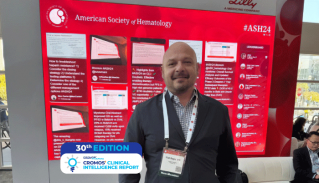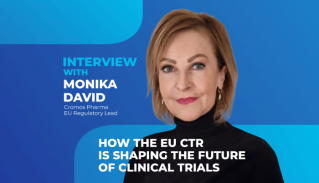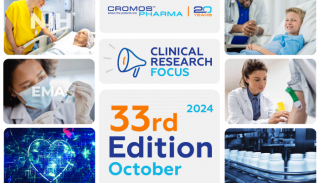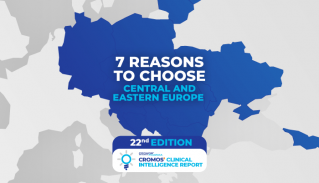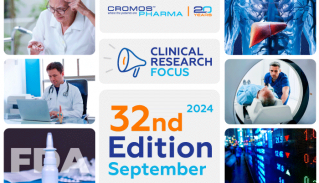
We at Cromos Pharma are always interested in what makes a sponsor choose a certain CRO
In order to get a better understanding of this question we have conducted a survey where we asked industry professionals about their vision of a “perfect CRO”. Our team would like to express sincere gratitude to all the participants of the survey whose responses we greatly appreciate.
Below you can find the top-line results of the survey. A more detailed analysis of the collected data will soon be published in an industry related journal.
Respondents’ profiles
A total of 122 participants completed the questionnaire. The majority of respondents listed pharmaceutical companies as their place of work (81.8%), 13.6% listed biotech companies and 4.6% indicated that they belonged to other types of organizations (e.g. academic research organizations).
As represented in the graph below, the largest group of respondents (25.7%) identified themselves as employees of large pharma (1000-5000 employees), followed by representatives of small companies (1-50 employees) – 19.1%.
At the same time, 47.6% of respondents indicated that their companies initiate between 1 and 5 trials per year.
*number of studies significantly varies from year to year
When asked to rate Outside of US (OUS) clinical trial locations, more than 70% of respondents identified former Soviet bloc countries as the most attractive clinical research region, followed by Central, Eastern Europe and Asia, which jointly took around 25% of the votes. The least favorite locations included Middle East, Africa and Australia (less than 5% of replies).
CRO selection criteria
Ranked in order of importance, the following criteria were identified as pertinent when choosing a CRO:
1. Reasonable cost, transparent budget proposal
2. Performance during bidding process (understanding of project details, response times, suggestions on study optimization)
3. CRO experience (staff experience in a given therapeutic area)
4. CRO reputation, industry recommendations
The least important criteria included:
1. Location of headquarters (more than 50% of respondents indicated that it did not influence their CRO selection)
2. CRO size
3. Breadth of geographical coverage.
According to the majority of replies, a perfect CRO is a mid-sized organization that covers several countries (almost 50% of responses).
| Answers Choices | Responses, % |
| Global, covering all countries the study may be conducted in | 21.3 |
| Mid-sized, covering several countries | 47.8 |
| Small, covering 1-2 countries where the study is being planned | 30.9 |
When asked about the average duration of their relationships with CROs, the greatest number of respondents preferred to work with a reliable and known partner.
| Answer Choices | Responses, % |
| A new CRO is selected for each project | 16.0 |
| We work with one partner on average of 2-4 years | 47.8 |
| We have a long-standing relationship that lasts more than 5 years | 36.2 |
The graph below demonstrates that CRO’s therapeutic specialization tends to be of great importance to respondents. However this appears to be critical only in certain therapeutic fields (e.g. Dermatology, Ophthalmology).
Question: Do you prefer to work with a specialized CRO (i.e. therapeutically focused CRO)?
When asked about the most crucial factor in choosing a certain CRO, the majority of respondents emphasized past experience with this CRO. It is also worth noting that persuasive skills of CRO’s team members at bid defenses had no effect on CRO selection.
When asked about CRA’s education, the majority of respondents rated medical background as non-critical, but preferable (55% of respondents).
| Answers Choices | Responses, % |
| Medical background is one of the key factors when choosing a study team | 20.3 |
| Medical education is preferable, but is not critical | 55.2 |
| It’s experience in clinical trials that we care about | 24.5 |
We hope that this snapshot of our survey results will add to your understanding of the current trends in CRO selection. If you are interested in receiving a copy of an upcoming publication with complete analysis of the collected data, please email us at:










